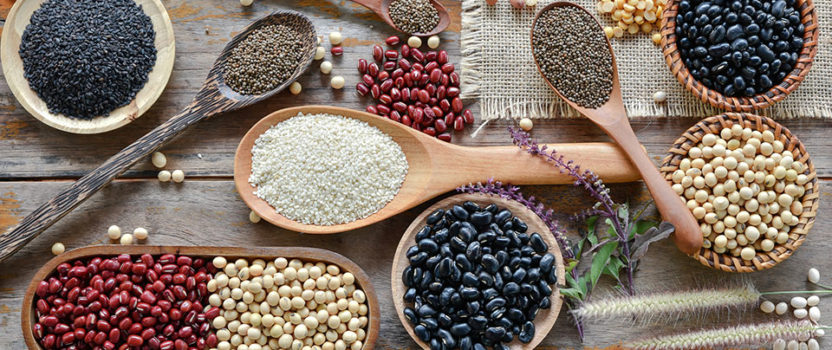What are lectins?
Perhaps you’ve never heard of them, but they could be damaging your health. Lectins are part natural compounds and part anti-nutrients. Most health professionals never mention them, but since they can reduce nutrient absorption and may be the culprit behind digestive symptoms such as indigestion, bloating and gas, it makes sense that you know what they are and be on the lookout for them.
Nature’s Pesticides
Mother Nature has developed her own strategy for pest control (humans are a pest too!). Weird as it seems, plants don’t like to be eaten – at least not in huge quantities that would threaten the survival of their species. They have evolved to produce low grade toxins that can trigger digestive distress, thereby encouraging people (and other pests) to benefit from their nutrients, while limiting their intake. Once upon a time our foraging ancestors ate a widely-diversified diet – so everything was in balance and the system worked. These days it’s a different story.
“Sticky” effects
Lectins are basically carb-binding proteins present in all plants and animals. Not only do they protect plants from predators, they also protect them from disease. They are sticky molecules, so they bind efficiently with sugars, but this quality makes them detrimental when it comes to digestion as they tend to “stick” to the intestinal lining and contribute to problems such as “leaky gut”, leptin resistance and even autoimmune disease.
Always part of our diet, traditional cultures have effective ways to help break down lectins (fermentation, soaking) but our modern life often means we skip these important practices.
What foods contain them?
All of them – to some degree. But some foods have mood than others. The ones with the highest amount of lectins are:
- Grains – all kinds, but especially wheat.
- Legumes – especially soy.
- Nuts
- Dairy
- Nightshade Plants – aubergines, tomatoes, potatoes, peppers etc
- GMO foods – since lectins are often “spliced” into modified varieties.
Limiting your intake
Lectins are everywhere, so you can’t completely avoid them – nor should you try! The best strategy is just not to exaggerate and take sensible precautions.
- Limit your intake of wheat and dairy products – include alternative grains (millet, brown rice, oats) and plant milks in your diet.
- Don’t overdo it on the nightshades – try quinoa or rice instead of potatoes sometimes. Don’t go overboard on the tomatoes in summer!
- Monitor your sensitivity – different people have different reactions. Keeping a food diary can help you keep track of your symptoms and gauge the likelihood of intestinal inflammation.
- Take up “old” traditions such as fermentation, sprouting and soaking – if you really don’t have time for the first two, at least soak your beans and lentils before using!
- Don’t eat too much RAW food – Some nutrients are enhanced by heat. Some anti-nutrients (like lectins) are at least partially “disarmed” by it.
- Take care of your gut health – modern day living and poor eating habits have a negative effect on our digestive health. Love your gut by taking probiotics, eating plenty of fibre and avoiding unnecessary medications and antibiotics. A healthy gut is always your best defense!


Leave a Reply
Your email is safe with us.
You must be logged in to post a comment.